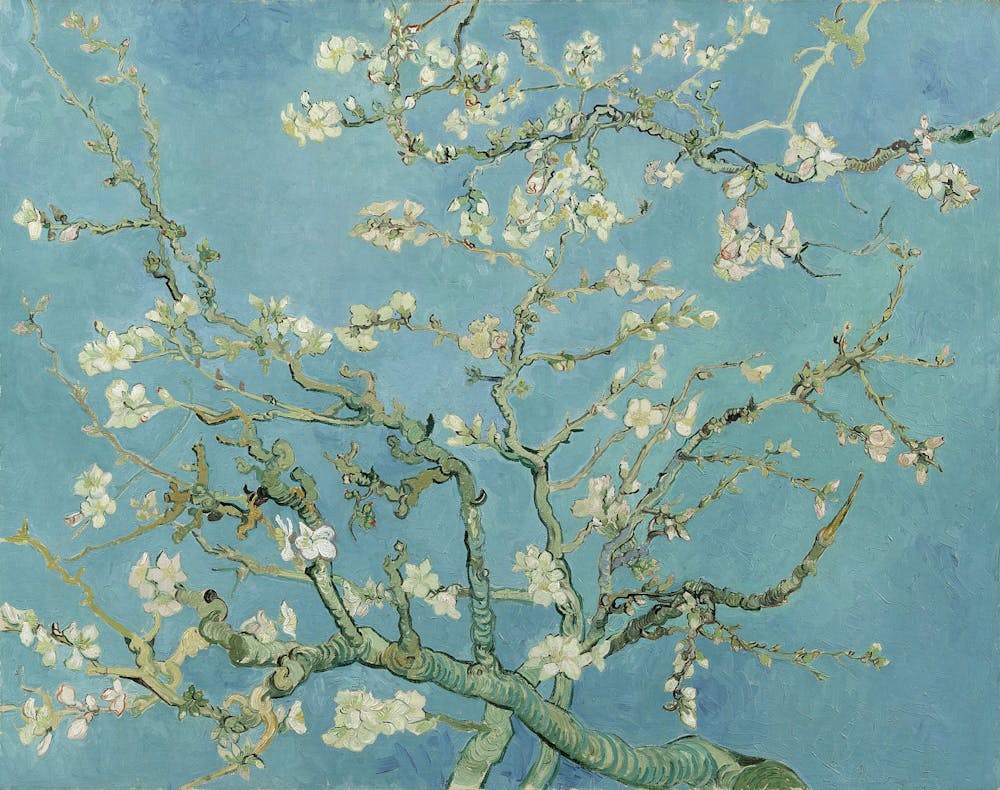Recently I fell down a rabbit hole of Wikipedia articles, as I tend to do when I have important responsibilities that I’m trying to ignore, and somewhere along the way, I stumbled across an archive of Van Gogh’s letters: ones he’d sent to his brother, to his friends, and to fellow artists, all seeking to create something grand and important, something that could change the world.
The letters span almost two decades, up until less than a week before his death. They tell the story of a man preoccupied with mundane thoughts: ramblings about the best paint colors, plans for the decoration of his room, sending his thanks to his brother for the loan of (yet another) 50 francs. And as I read through all those years, through letters filled with ordinary details from a man who was anything but, I noticed one common thread throughout.
“To be of use,” Van Gogh had repeated, over and over again, to many different people over many different years. He’d wanted to be useful, to live in service of something greater than himself. And he’d been worried that he could never achieve that: he’d been afraid that his life would be meaningless, in the grand scheme of things. “What preys on my mind,” he once wrote to his brother Theo, “is simply this one question: what am I good for, could I not be of service or use in some way?”
It’s a question that’s been on my mind a lot, too, especially since I’ve started thinking more about college and my future.
Princeton’s own informal motto — “Princeton in the nation’s service and the service of humanity” — is a beautiful idea, but it’s also one that creates a lot of pressure. From the second my acceptance to Princeton became a concrete reality, I started thinking about what it meant. What it meant to be a student at a prestigious university, what it meant to have a world of opportunities at my fingertips.
For me, what it meant was that I had to take advantage of them to the fullest: I had to start changing the world as soon as possible. Because with all I’d been given, with all the privilege that being a student here would undoubtedly bring, how could I do anything except work to be in the service of humanity, in any and every way I could?
Even as I started to settle into life here, that pressure never really went away. In a lot of ways, it felt like I was racing against time, racing to do something revolutionary as soon as I possibly could. Then, just the other day, as I was trying to avoid facing all of my responsibilities yet again, I rediscovered one of my favorite Van Gogh pieces: “Almond Blossom.”
It’s a beautiful painting, and one that I’ve loved for a long time, but I’d never known that Van Gogh had created this particular piece as a present for his brother, Theo, and his wife, for the birth of their new son. Not for a grand purpose and not to create something that would change the world forever. Just to celebrate something good happening to the people he loved: to bring them a little more happiness, in whatever way he could.
To me, that gives the painting more meaning than it could ever have had on its own.
Today Van Gogh is a household name; his art has had an impact on our world beyond anything I think he’d ever dared to dream of.
“Almond Blossom,” the little piece he’d created as nothing more than a thoughtful gift for his brother and sister-in-law, is one of his most enduring works. From one angle, maybe I could interpret that as a sign not to worry: maybe I could believe that everything will fall into place, that greatness will come eventually.
Instead, what speaks to me the most is this: even if everything doesn’t fall into place — even if I never manage to change the world — it’ll still all be okay. It’ll be enough to hold on to the things that make me happy, the things that I love, even if they aren’t grand or earth-shattering.

“Almond Blossom” would not lose its poignancy if it were suddenly forgotten: either way, it brought happiness to Van Gogh’s loved ones, and that was enough. I think that for us, too, we can make those little happinesses more than enough.
Thia Bian is a Staff Writer for The Prospect at the ‘Prince.’ She can be reached at cynthiabian@princeton.edu, or on Instagram at @cynthia.bian.
Self essays at The Prospect give our writers and guest contributors the opportunity to share their perspectives. This essay reflects the views and lived experiences of the author. If you would like to submit a Self essay, contact us at prospect@dailyprincetonian.com.








